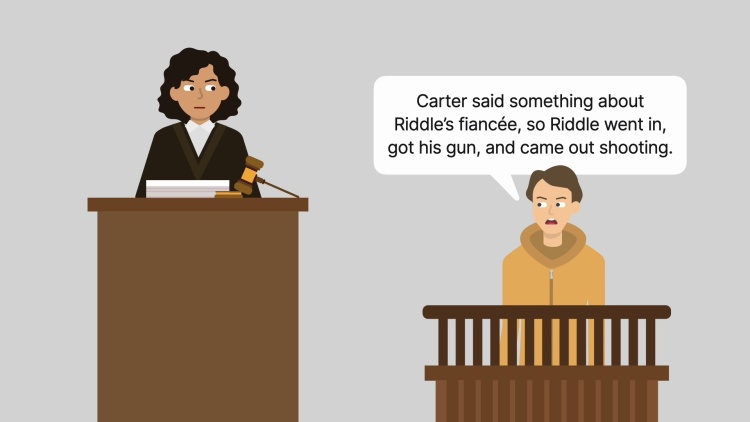People v. Riddle
Michigan Supreme Court
467 Mich. 116 (2002)
- Written by Samantha Arena, JD
Facts
In August 1997, Marcel Riddle (defendant), Robin Carter, and James Billingsley were in the yard outside Riddle’s home when Riddle shot Carter with a rifle. Carter died days later. The State of Michigan (plaintiff) charged Riddle with first-degree murder. At trial, Billingsley testified that after Carter made a disparaging comment to Riddle, Riddle retrieved a rifle from his home and shot Carter. Riddle, however, testified that while intervening in an argument between Carter and Billingsley, Riddle thought he saw Carter in possession of a gun. Riddle subsequently retrieved his rifle and shot Carter. Riddle requested that the trial judge instruct the jury that there is no duty to retreat in one’s home before exercising self-defense. The court denied the request, instead instructing the jury that it could, in determining whether Riddle acted reasonably, consider whether Riddle could have safely retreated. The judge further instructed the jury that if, however, Riddle honestly and reasonably believed it was immediately necessary to use deadly force to protect himself from imminent threat of death or injury, Riddle was not required to retreat and was entitled to use the amount of force he thought necessary to protect himself. The jury convicted Riddle of the lesser-included offense of second-degree murder. Riddle appealed, contending that the trial judge erred in refusing to instruct the jury on the castle doctrine.
Rule of Law
Issue
Holding and Reasoning (Young, J.)
What to do next…
Here's why 907,000 law students have relied on our case briefs:
- Written by law professors and practitioners, not other law students. 47,100 briefs, keyed to 996 casebooks. Top-notch customer support.
- The right amount of information, includes the facts, issues, rule of law, holding and reasoning, and any concurrences and dissents.
- Access in your classes, works on your mobile and tablet. Massive library of related video lessons and high quality multiple-choice questions.
- Easy to use, uniform format for every case brief. Written in plain English, not in legalese. Our briefs summarize and simplify; they don’t just repeat the court’s language.





